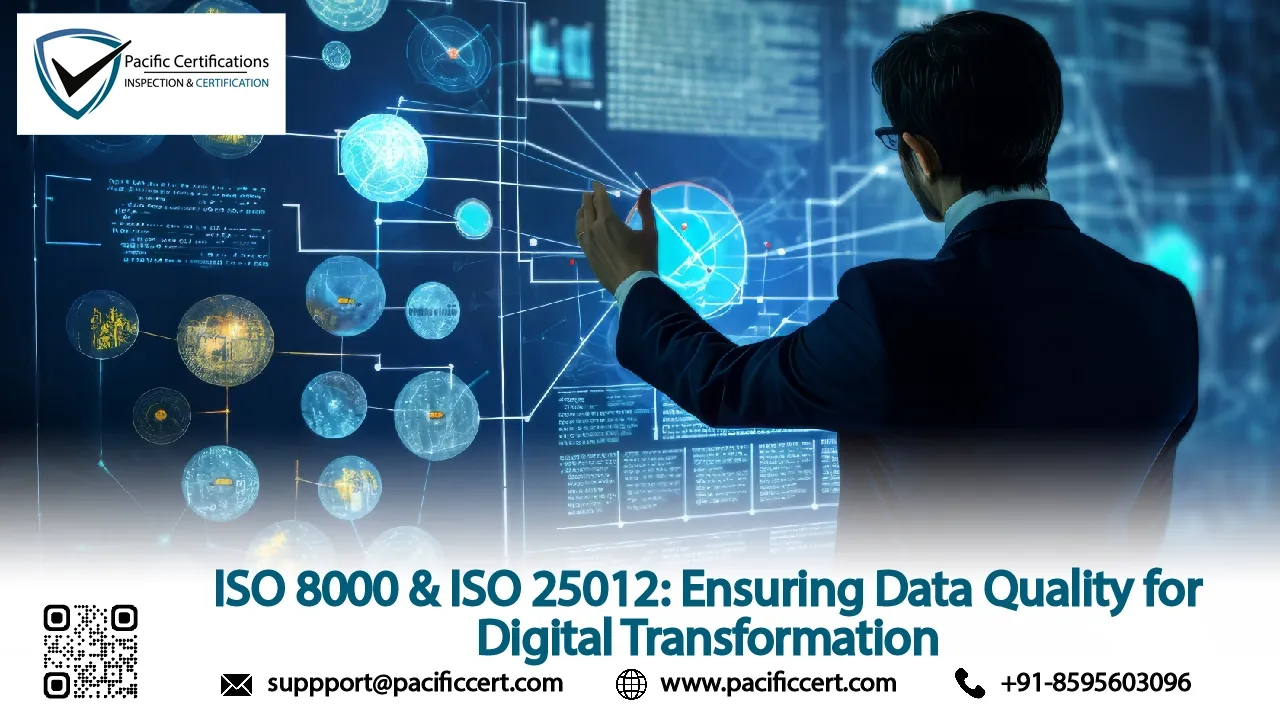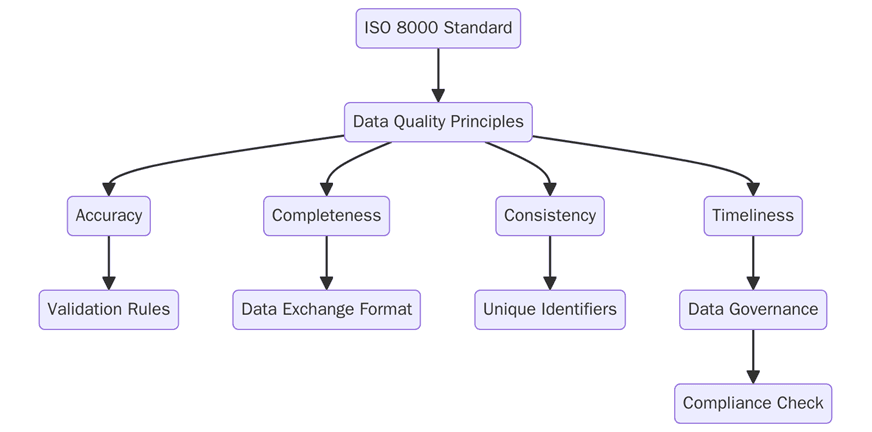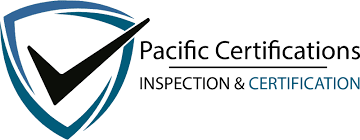ISO 8000 & ISO/IEC 25012: Data Quality Standard for Digital Transformation

Introduction
Data quality is an important enabler of digital transformation in current environments dominated by digital activities. Managing and governing data appropriately enables organizations to make informed decisions, optimize processes and fulfil legislative and other requirements. Two of the main standards focused specifically on data quality and context are: ISO 8000, also referred to as ‘master data management’ and ISO/IEC 25012, which discusses data quality framework.
In this blog we will look at how ISO 8000 and ISO/IEC 25012 are also very useful to support data quality, including their applications in digital transformation projects, data governance models and master data management. We will also evaluate how they help organizations in a range of environments such as Manufacturing and IIoT (Industrial Internet of Things) to better govern and manage quality data and information.
Digital transformation is only as strong as the quality of the data behind it. ISO 8000 and ISO 25012 turn raw information into reliable intelligence that drives confident decisions and sustainable growth.
For assistance, contact us at [email protected].
Why ISO 8000 & ISO/IEC 25012 data quality standard matter?
There is no denying how important data quality is for organizations depending on a digital transformation journey. As organizations will rely on technology and data is the 'lifeblood' of any solution, the quality of that data will impact operational excellence and potential competitive advantages. ISO 8000 and ISO/IEC 25012 provide organizations an impressive collection of frameworks to establish, controlling and management of data quality as it relates to their various functions. ISO 8000 focuses on the quality of master data, while ISO/IEC 25012 provides the guidelines for general data quality characteristics.
ISO 8000 Master Data Quality Requirements Explained
ISO 8000 is a standard that has a singular purpose – the quality of master data. Master data is the important business data that spans systems and processes, e.g. customer, and supplier, or product data. Ensuring that this data is of good quality is critical for organisations, if data quality is poor, the accuracy and reliability of business operations will be compromised.

Master Data must represent the true value it is designed to represent. Bad data leads to bad decisions and inefficiencies in operations. Data needs to be consistent across systems and platforms, so there are not differences in different sources of identical data. Master data needs to be complete, with all relevant data elements captured, without anything significant omitted.
ISO 25012 vs DAMA DMBOK: Data Governance Models
ISO/IEC 25012 and DAMA DMBOK (Data Management Body of Knowledge) are both important frameworks for data governance, but they differ in scope and application.
Data Quality Standard Assessment Worksheet
A Data Quality Assessment Worksheet is an essential resource for organizations that are undertaking to assess their data quality and identify opportunities for improvement. This worksheet is used to evaluate data from multiple dimensions, such as completeness, accuracy, timeliness and consistency.
The worksheet usually contains columns for identifying the various data quality characteristics (e.g., accuracy, consistency, completeness). It contains Fields to rate each of data dataset or data attribute based on its performance against each of the characteristics. It includes Sections for documenting any issues or deficiencies identified during the assessment.
For assistance, contact us at [email protected].
ISO 8000 Certification: Steps & Cost Breakdown
Achieving ISO 8000 certification involves a structured process that ensures your organization meets the master data quality requirements outlined by the standard. The certification process typically includes several key steps:
Assess your organization's current master data quality management practices. Identify gaps and improvement opportunities.
Assess your current practices against ISO 8000 requirements and develop an action plan to fill identified gaps.
Conduct internal audits to ensure your master data practices comply with ISO 8000 and implemented improvements are effective.
Obtain the services of an accredited certification body to conduct an external audit of your data management systems and practices.
If your systems comply with ISO 8000, you will receive certification, and you will have evidence that you are committed to managing high quality master data.
Tip: Start by mapping your existing data sources and identifying inconsistencies across systems. Apply ISO 8000 principles for standardized data exchange and use ISO 25012 to define measurable data quality dimensions such as accuracy, completeness and consistency. Regular data audits will help maintain reliability and trust across your digital ecosystem.
Cost Breakdown for ISO 8000 Certification
Consulting fees can help assess current practices and prepare for certification. Costs can vary based on the size of the organization. Training costs helps in training employees on ISO 8000 requirements and best practices can also add to the cost. Certification bodies charge fees for performing audits known as audit fees. The cost varies depending on the size and complexity of the organization. Once certified, organizations must maintain compliance with ISO 8000, which may involve periodic audits and updates to data management practices. This in known as Ongoing Maintenance fees.
Data Quality KPIs for Manufacturing ERP Systems
Data quality is a major success factor in Manufacturing ERP (Enterprise Resource Planning) systems. Bad data can lead to increased costs, poor production scheduling and inaccurate financial results. The data quality must be measured and managed with key performance indicators (KPIs) to help monitor how well the ERP system is working.
The number of accurate inventory records compared to the number of physical counts. Bad inventory data can lead to stockouts or overstocking. The number of orders processed and shipped correctly based on product specification and quantity without error. The degree to which the production schedules are achieved without delays. This indicates that information related to machine availability, labour and raw materials is accurate. The completed records that have every field populated, such as product description, supplier and pricing.
Contact Us
Pacific Certifications can assist your organization in the implementation of the ISO 8000 and ISO/IEC 25012 certification process. Our team of experts will help you implement effective data quality management practices, ensuring that your data is accurate, reliable and compliant with international standards.
If you need support with ISO 8000 and ISO/IEC 25012 certification , contact us at [email protected].
Read More at: Blogs by Pacific Certifications

